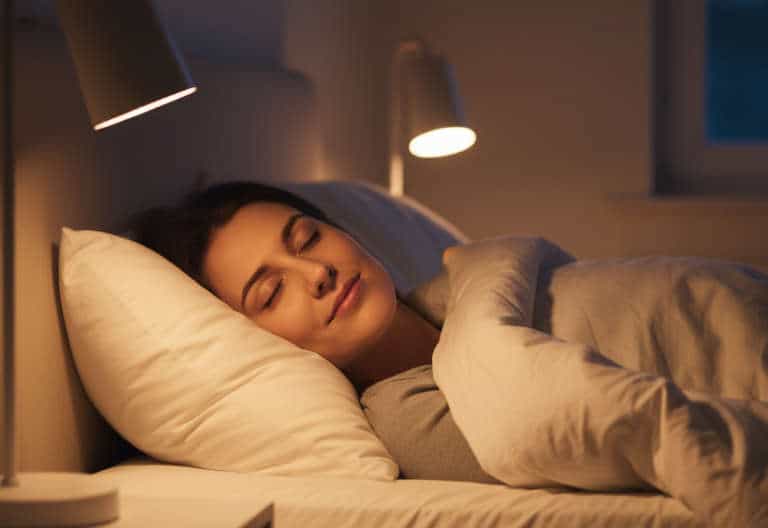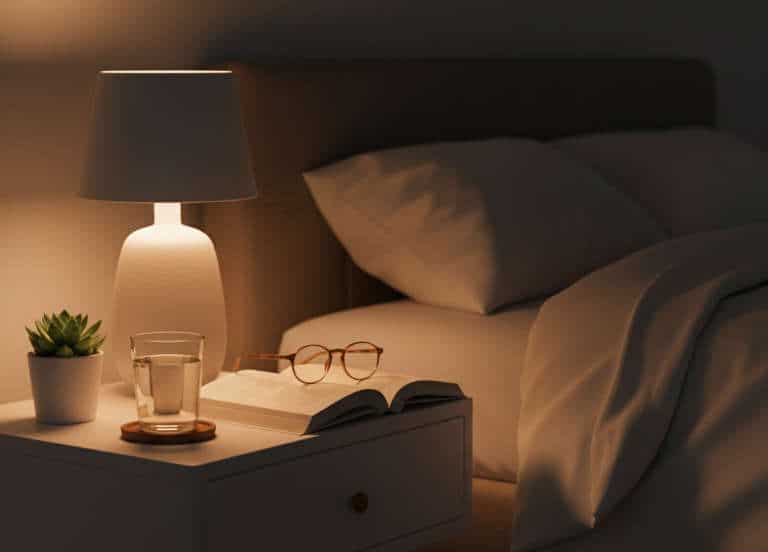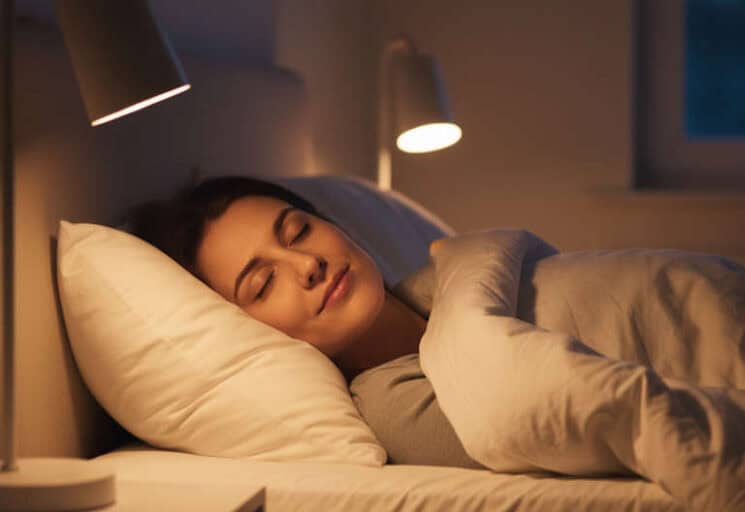How hypnotherapy for sleep anxiety works
Hypnotherapy is not about losing control. It is a gentle, focused state of awareness, similar to guided deep relaxation where the subconscious becomes more open to change.
With sleep anxiety, hypnotherapy works directly with the emotional and physical patterns that have become wired into bedtime. It helps you overcome sleep anxiety by calming the body, reframing thoughts, and allowing the nervous system to relearn how to rest.
Regulating the nervous system
Hypnotherapy for sleep anxiety helps the body shift out of fight or flight and into calm. Guided relaxation builds a new association with bedtime: safety rather than stress.
Physical tension begins to ease, and sleep becomes more accessible. This is one of the ways hypnotherapy helps people improve sleep naturally without relying on medication.

Interrupting thought loops
Those racing thoughts before bed? Hypnotherapy provides mental off-ramps. It allows you to notice thoughts without being trapped in them. Over time, the habitual cycle of worry loses its intensity. Clients often find that hypnotherapy for sleep anxiety works best when it interrupts these spirals and allows the mind to wind down more gently.
Reframing internal beliefs
Sleep anxiety is often fuelled by beliefs such as “I never sleep well” or “If I do not sleep tonight, everything will go wrong.” Hypnotherapy for sleep anxiety gently challenges these beliefs and replaces them with more supportive messages: “My body knows how to rest” or “I am safe in my bed.” By reprogramming the subconscious for sleep, hypnotherapy makes it easier to calm bedtime anxiety and build confidence in your natural ability to rest.
Restoring a sense of control
Hypnotherapy is not just something that happens to you. Many clients learn self-hypnosis techniques they can use whenever bedtime anxiety rises. These tools offer comfort and independence, helping you overcome sleep anxiety without relying solely on external fixes.
Addressing underlying emotional roots
Sleep anxiety is often only the surface. Beneath it may be stress, trauma, or grief. Hypnotherapy for sleep anxiety creates a safe space to explore these deeper patterns at your own pace, helping to untangle the roots that disturb rest. This approach goes beyond symptom management and works with the whole person.
But does it really work?
The evidence is encouraging. A growing body of research supports hypnotherapy for sleep anxiety as an effective way to reduce worry and restore sleep.
A review by Schlarb and colleagues found that hypnosis significantly improves sleep, especially for those with insomnia. Studies by Hammond and Cordi show that hypnosis reduces both general anxiety and bedtime-specific worry. The American Psychological Association also recognises hypnotherapy as a validated intervention for anxiety and stress-related conditions.
If you would like to use hypnotherapy for sleep anxiety, see our main page on hypnotherapy for insomnia.
What to expect in a session
Every session is different, but the overall approach is gentle and safe.
You begin with a short conversation about your experience. Then you are guided into a relaxed, trance-like state, remaining fully conscious and aware. While in this state, the therapist offers suggestions, imagery, and techniques designed to calm bedtime anxiety and support deep rest.
Many people describe the experience as calming, empowering, and even transformative.
Important considerations
Hypnotherapy for sleep anxiety is most effective when combined with healthy sleep practices:
- A consistent bedtime
- Reduced screen time in the evening
- A calm and comfortable environment
- Limiting caffeine and alcohol
It also complements Cognitive Behavioural Therapy for Insomnia (CBT-I), the leading evidence-based treatment for persistent sleep problems.
When seeking help, look for a qualified professional with specific experience in sleep and anxiety-related issues.

Professional registers include:
- CNHC – Complementary and Natural Healthcare Council
- GHR – General Hypnotherapy Register
- NCH – National Council for Hypnotherapy
- APHP – The Association for Professional Hypnosis and Psychotherapy
A final word
If bedtime feels like a battle, hypnotherapy for sleep anxiety offers a new path forward. At RINTT we see sleep anxiety not as a flaw, but as a learned pattern in the nervous system. And patterns can be unlearned, replaced with healthier ones.
Through integrative hypnotherapy, you can reprogram the subconscious for sleep, restoring trust in your body’s natural rhythms. Instead of fear and frustration, bedtime begins to carry the expectation of calm, safety, and rest.
This is not about short-term tricks. It is about changing the deeper loops that keep you stuck, and giving you back the confidence to improve sleep naturally. With time and consistency, peaceful nights stop being a distant hope and become something you welcome with ease.
That is the promise of true change at the subconscious level.
Further reading and references
Schlarb, A. A., et al. (2020). Hypnotherapy for Insomnia: A Review. Sleep Medicine Reviews.
Hammond, D. C. (2010). Hypnosis for Anxiety Disorders. Expert Review of Neurotherapeutics.
American Psychological Association. Division 30. Hypnosis Explained.
Cordi, M. J., et al. (2019). How Hypnosis Reduces Pre-Sleep Worry. Scientific Reports.
Stanton, H. E. (1989). Hypnosis and Falling Asleep Faster. International Journal of Clinical Hypnosis.


